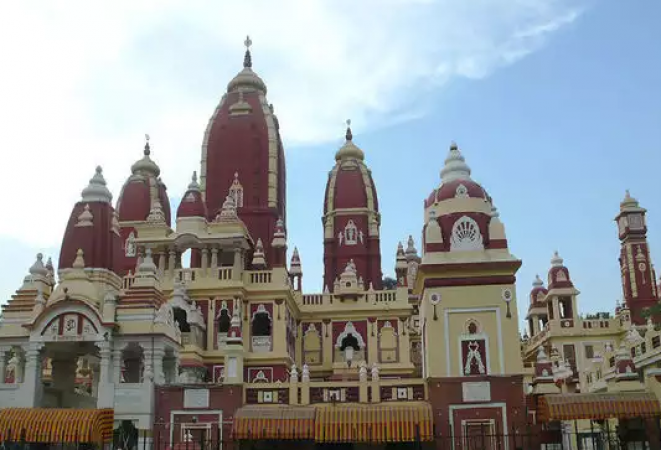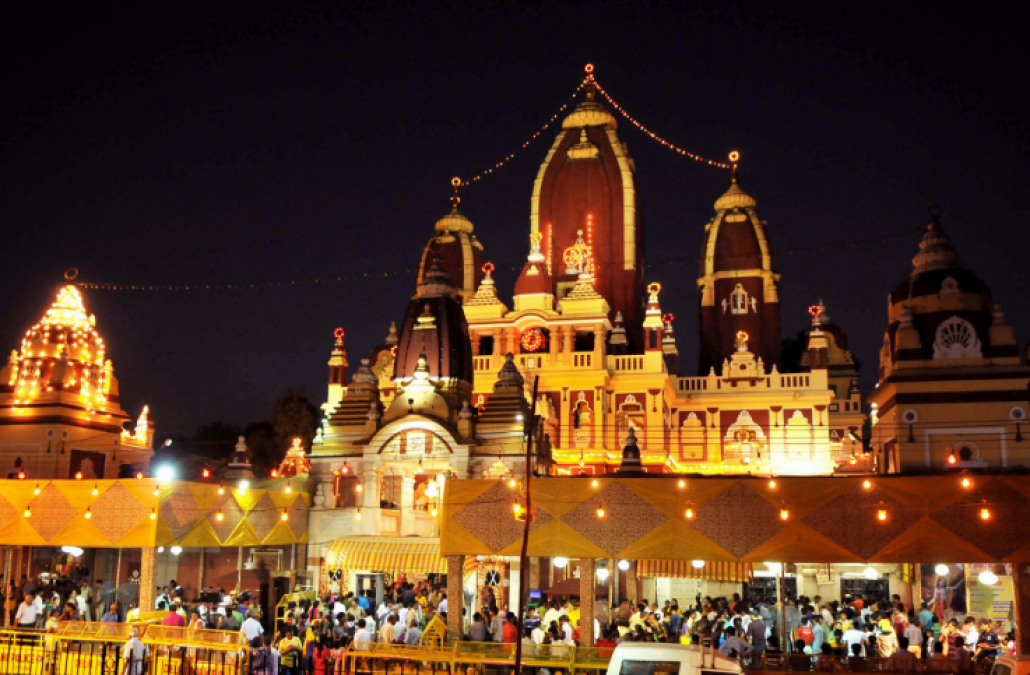
Lakshmi Narayan Temple, also known as Birla Mandir, is a prominent Hindu temple located in the heart of Delhi, India. Built-in 1939 by the renowned industrialist B. R. Birla and his sons, the temple stands as an architectural marvel and a symbol of devotion. With its intricate carvings, serene atmosphere, and religious significance, the Lakshmi Narayan Temple attracts thousands of devotees and tourists each year. In this article, we delve into the rich history, importance, and practices of worship associated with this magnificent temple.
Historical Background:
The Lakshmi Narayan Temple is dedicated to Lord Vishnu and Goddess Lakshmi, who is regarded as the preserver and bestower of wealth and prosperity in Hindu mythology. The foundation stone for the temple was laid by Maharaja Udaybhanu Singh of Bikaner in 1933, and its construction was carried out under the guidance of Pandit Vishwanath Shastri. The temple was inaugurated in 1939 by Mahatma Gandhi, who laid great emphasis on the temple's role in promoting communal harmony and national unity.
Architectural Splendor:
Designed by the famed architect Sir Chimanlal Shustri, the Lakshmi Narayan Temple showcases a harmonious blend of traditional Hindu temple architecture with modern influences. The temple complex spreads over a vast area and features several shrines dedicated to various deities, including Lord Vishnu, Goddess Lakshmi, Lord Shiva, Lord Krishna, Lord Rama, and Goddess Durga. The intricate carvings on the marble facades depict scenes from Hindu mythology, while the ornate spires, domes, and pillars exhibit remarkable craftsmanship.
Significance and Importance:
Lakshmi Narayan Temple holds immense religious and cultural significance for Hindus. Devotees flock to the temple to seek the blessings of Lord Vishnu and Goddess Lakshmi for wealth, prosperity, and overall well-being. The temple is considered a sacred place for performing religious ceremonies, weddings, and other auspicious events. Its serene ambiance and spiritual vibrations provide solace and peace to visitors, allowing them to connect with their inner selves and deepen their faith.

Worship and Rituals:
Visitors to Lakshmi Narayan Temple can partake in various rituals and practices to seek the divine blessings of the deities. The most common form of worship is through prayer and offering of flowers, fruits, and sweets. Devotees often perform aarti (a devotional ceremony involving the waving of lamps) and sing hymns in praise of the deities. Special occasions such as festivals, birthdays of deities, and religious anniversaries witness elaborate rituals and celebrations, drawing large congregations of devotees.
Community Initiatives:
Besides its religious importance, Lakshmi Narayan Temple has been actively involved in numerous philanthropic and social activities. The temple runs educational institutions, hospitals, and charitable organizations that provide healthcare, education, and other essential services to the underprivileged sections of society. These initiatives align with the vision of the Birla family, who aimed to create a place of worship that serves as a beacon of social welfare and inclusiveness.
Visitor Experience:
A visit to the Lakshmi Narayan Temple is a mesmerizing experience for devotees and tourists alike. The tranquil environment, soothing chants, and magnificent architecture create an aura of divinity. The temple complex offers ample space for meditation and self-reflection, allowing individuals to find inner peace amid the bustling city. The stunning views of the surrounding landscape from the temple premises further enhance the visitor experience.
Lakshmi Narayan Temple, Delhi, stands as a testament to the rich cultural heritage and religious diversity of India. With its captivating architecture, profound spiritual significance, and community-oriented initiatives, the temple continues to inspire and uplift the millions who visit its premises. Whether seeking solace, expressing devotion, or exploring the intricate facets of Hindu mythology, a visit to the Lakshmi Narayan Temple is a deeply enriching experience that resonates with both the religious and cultural fabric of India.
Kerala Devotees Engage in KARKIDAKA VAVU BALI Ritual Statewide